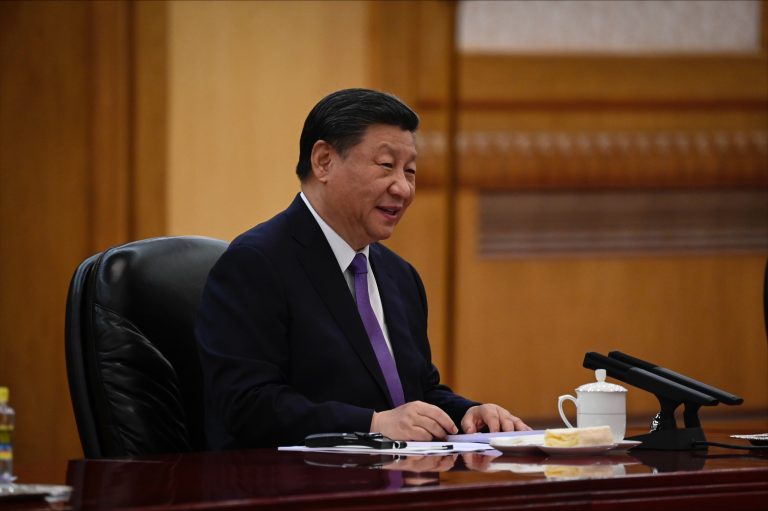On July 15, the Ministry of Public Security in China launched another internet crackdown, targeting online rumors, following a call by communist party leader Xi Jinping to form a “security banner.” The ministry aims to educate the public on “the harms of misinformation,” via a week-long propaganda campaign and crackdown, SCMP reported.
“We must… thoroughly implement the important thoughts of the Communist Party’s Central Committee about [building] a ‘cyber great power’ and earnestly shoulder the responsibility of raising the banner to gather the hearts of the people, preventing risks and ensuring safety, and strengthening governance to benefit the people,” Xi said in a cybersecurity meeting in Beijing, state-owned news agency Xinhua, reported.
Xi has always desired that China become a “cyber great power” which could expand internet infrastructure for a “civilized” network.
“[We must] increase momentum to promote development and seek win-win cooperation, adhere to the party’s management of the internet and the principle of [building] internet trust for the people,” Xi said, adding that, “[We must] persist in building a solid national network security barrier, giving play to the driving and leading role of information, and managing, operating and accessing the internet according to the law.”
“We must adhere to the Party’s management of the internet and adhere to [the principle of] making the internet work for the people,” he said, according to Xinhua.
Success
You are now signed up for our newsletter
Success
Check your email to complete sign up
Amidst the crackdown, police forces are to discourage people from spreading misinformation at government agencies, schools, businesses and rural areas.
On the state-owned social media site, Weibo, Shanghai police reported that 258 people have been suspected of spreading false information online. Some 460 illegal accounts were taken down for violations. In one incident, someone was charged for sharing false rumors of a kindergarten teacher being involved in prostitution.
In Sichuan, 57 people were detained by local police, who also recorded 52 cases of “malicious fabrication and dissemination of online rumors.” More than 3,800 rumors and 116 online accounts were dealt with; one such case being that of a person who spread rumors of a teenager’s death, which police stated was a death by suicide.
Three more individuals were caught for allegedly concocting a false tale about a female university student being raped.
READ MORE:
- Japan Aligns With the US, Imposes Export Controls on Chip Making Equipment to China
- China Bans Tesla From Chengdu With Xi Set To Visit City
- China Removes Its Disappeared Foreign Minister Qin Gang as Speculation Abounds
Online assault
The crackdown came after another in early April this year, which ran for 100 days targeting online rumors. According to communist authorities it was said to have achieved “remarkable results.” More than 1,600 cases of online rumors were reported and more than 10,000 social media accounts were taken down for spreading false information.
Lawmakers also made amendments to a ban on transferring information related to national security, by adding anti-espionage clauses and expanding the definition of “spying.”
Much earlier, in 2015, a national security law was passed to reinforce the country’s cyberspace; a year before another was made to enforce security reviews and requirements to store data on Chinese servers.














